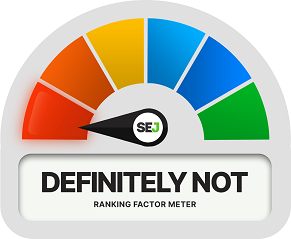Every SEO professional knows content is king. And not all content is created equal.
But does your content’s readability affect how Google ranks you in search results?
There are a lot of misconceptions about this. But what exactly is readability?
If you’ve done any content creation, there’s a good chance you’ve come across readability tools like the popular Yoast SEO WordPress plugin before. These valuable tools evaluate your copy and generate statistics such as passive voice, paragraph length, subheads, and transitions.
And included in this analysis is Flesch Reading Ease (FRE). FRE is a scale between one and 100, with 100 being the easiest to read and one being incomprehensibly dense.
For example, this piece scored 59 on the FRE scale, which puts it at a ninth-grade reading level. This score takes two variables into account: word length and sentence length. Generally, longer words and sentences will lower your FRE score.
While content that is easier to read will perform better with visitors, what about with search engines? How much do you need to focus on improving readability to secure a high ranking?
Let’s take a look.
And if you have questions about other ranking factors, download the Google Ranking Factors: Fact Or Fiction ebook for the whole story.
The Claim: Reading Level As A Ranking Factor
In 2010, Google added a short-lived “reading level” filter to its advanced search function. But the idea that readability affects search engine rankings has been around a lot longer than that.
And the rise of Google’s machine learning models BERT and MUM, which aim to understand language and content quality, seem to hint that it’s still important.
But what’s the truth? Should you be obsessed with turning all those red and orange circles on your reading analysis green? Will eliminating passive sentences and adjusting your vocabulary to a sixth-grade level send your page rocketing to the top of search engine results?
The Evidence Against Readability As A Ranking Factor
Despite claims to the contrary, reading level does not factor into your search ranking. Google’s Senior Webmaster Trends Analyst John Mueller confirmed this in a 2018 Google Webmaster Hangout:
“From an SEO point of view, it’s probably not something that you need to focus on, in the sense that, as far as I know, we don’t have kind of these basic algorithms that just count words and try to figure out what the reading level is based on these existing algorithms.
But it is something that you should figure out for your audience.”
FRE is a basic score with just two variables, so this makes sense.
To verify this, Portent ran a study analyzing the reading level of more than 750,000 pieces of content for 30,000 desktop search queries. This study found no correlation between Google search ranking and a page’s reading level.
So, SEO professionals can just disregard FRE, right?
No.
Readability has an impact on user experiences, and that plays an ever-increasing role in SEO. If visitors to your website struggle to read and understand your content, they’re more likely to leave.
Challenging-to-read pieces are also much less likely to have incoming links directed to them, which is an essential ranking factor.
To quote John Mueller’s hangout again:
“A common example is a medical site. You want to provide medical information for the general public because you know they’re worried about this. And all of your articles use these medical words that are 20 characters long. Technically, it’s all correct.
You could calculate the reading level score of that content. You come up with a number.
But it’s not a matter of Google using that reading level score and saying, this is good or bad. But rather, does it match what the people are searching for? And, if nobody’s searching for those long words, then nobody’s going to find your content. Or, if they do find your content, they’re going to be like… I don’t know what this means.”
So, it would seem that while your content’s reading level can have some effect on your ranking, it’s not a ranking factor.
Our Verdict: Reading Level Is Not A Ranking Factor

While not a confirmed ranking factor, the reading level is critical to content strategy. Every audience has different preferences regarding the complexity and reading level of content.
Write For Your Audience
The key to successful web content is usefulness. To rank highly, you must demonstrate that your webpage answers a search query better than anyone else.
And the way to do this is by understanding your audience.
For example, suppose you’re trying to promote a company that sells electron microscopes. In that case, you can probably get away with using a more sophisticated vocabulary than if you were selling mudflaps.
Just be careful to avoid talking down to your audience, which will alienate them as quickly as using $10,000 words.
Writing good content is a skill that every SEO professional would do well to cultivate. Adapting your writing to a specific reading level isn’t a ranking factor, but using words that don’t resonate with your audience will always be a problem.
Got other questions about what is and isn’t a ranking factor? Download the Google Ranking Factors: Fact Or Fiction ebook.
Featured Image: Paulo Bobita/Search Engine Journal
window.addEventListener( ‘load’, function() {
setTimeout(function(){ striggerEvent( ‘load2’ ); }, 2000);
});
window.addEventListener( ‘load2’, function() {
if( sopp != ‘yes’ && addtl_consent != ‘1~’ && !ss_u ){
!function(f,b,e,v,n,t,s)
{if(f.fbq)return;n=f.fbq=function(){n.callMethod?
n.callMethod.apply(n,arguments):n.queue.push(arguments)};
if(!f._fbq)f._fbq=n;n.push=n;n.loaded=!0;n.version=’2.0′;
n.queue=[];t=b.createElement(e);t.async=!0;
t.src=v;s=b.getElementsByTagName(e)[0];
s.parentNode.insertBefore(t,s)}(window,document,’script’,
‘https://connect.facebook.net/en_US/fbevents.js’);
if( typeof sopp !== “undefined” && sopp === ‘yes’ ){
fbq(‘dataProcessingOptions’, [‘LDU’], 1, 1000);
}else{
fbq(‘dataProcessingOptions’, []);
}
fbq(‘init’, ‘1321385257908563’);
fbq(‘track’, ‘PageView’);
fbq(‘trackSingle’, ‘1321385257908563’, ‘ViewContent’, {
content_name: ‘reading-level-ranking-factor’,
content_category: ‘seo’
});
}
});
Source
[sibwp_form id=1]

![Is Reading Level A Google Ranking Factor? 3 Ranking Factors: Fact Or Fiction? Let’s Bust Some Myths! [Ebook]](https://cdn.searchenginejournal.com/wp-content/uploads/2022/08/rf-ebook-download-banner-62e8c6126ffe8-sej.jpg)

